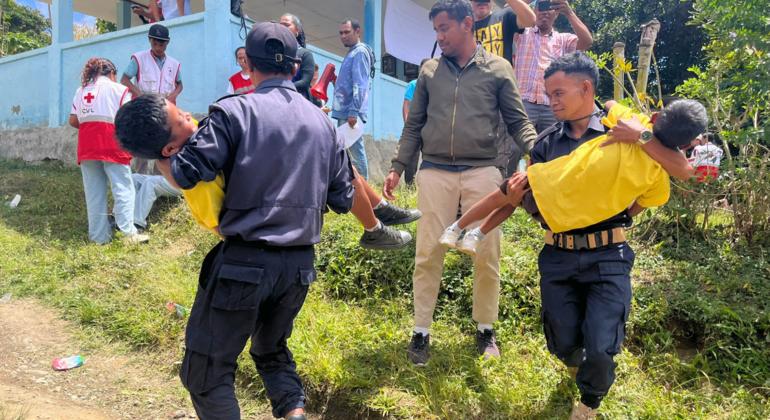In April 2021, the small Southeast Asian nation of Timor-Leste faced a devastating natural disaster that would leave a lasting impact on its population. Catastrophic flash floods ravaged the country, claiming the lives of more than 30 people and destroying over 4,000 homes. Among the worst-hit areas was Orlalan, a remote mountainous village with a population of nearly 6,000. Residents in Orlalan were caught off guard by the sudden surge of floodwaters and landslides, leaving them vulnerable and unprepared.
In the aftermath of the 2021 floods, community leaders like Armandina Valentina emerged as beacons of hope in their villages. Valentina, whose own family was affected by the disaster, took it upon herself to educate her neighbors on disaster preparedness and response. She tirelessly went door to door, ensuring that every resident knew where to go and what to do in case of another emergency. Valentina emphasized the importance of protecting the most vulnerable members of the community, such as pregnant women, children, and the elderly, to prevent panic and ensure their safety.
Valentina’s efforts were part of a larger national initiative supported by the United Nations Environment Programme (UNEP) to safeguard the lives of the Timorese population. This initiative aimed to empower local communities to be better prepared for future disasters and reduce the impact of such events on vulnerable populations. Through education, training, and simulation exercises, the program sought to build resilience and response capacity at the grassroots level.
One key aspect of the preparedness program was disaster simulations, where community members, especially children, played a crucial role. UN News recently participated in one of these drills in Orlalan, witnessing firsthand the dedication and commitment of young volunteers like Fretiliana Alves. In these simulations, children learned essential skills such as staying in visible areas, protecting their heads, and calling for help if trapped. Some children even acted as injured victims, receiving first aid and being guided to safety by rescue teams.
For Alves and others like her, these simulations were more than just training exercises—they were a calling to serve and protect their communities. Alves encouraged her peers to join the effort, highlighting the fulfillment that comes from rescuing and caring for those in need. The success of these preparedness efforts relied heavily on local volunteers who knew the risks and terrain of their communities, serving as crucial first responders during disasters.
Emidia Belo, the Disaster Risk Reduction coordinator for the Red Cross of Timor-Leste (CVTL), emphasized the importance of these local volunteers in disaster response. Their intimate knowledge of the local conditions and their quick mobilization in times of crisis were invaluable, especially when access to affected areas was limited or blocked. Belo recognized the critical role these volunteers played in saving lives and minimizing the impact of disasters on communities.
What set UNEP’s preparedness program apart was its inclusivity and focus on the most vulnerable members of society. Training sessions were tailored to ensure that people with disabilities, children, the elderly, and pregnant women were all adequately equipped to face the challenges of a disaster. Individuals like Antonio Ornai, who was visually impaired, were actively included in simulations and training exercises, empowering them to protect themselves and others in the future.
Ornai expressed his gratitude for being included in the program, recognizing the importance of being prepared and equipped to respond to emergencies. Emidia Belo reiterated the significance of inclusive preparedness efforts, noting that disasters affect everyone but often hit the most vulnerable the hardest. She emphasized that changing the community’s mindset to prioritize preparedness was a long-term process that required ongoing education and engagement.
As Timor-Leste continued to recover from the devastating floods of 2021, the lessons learned from that disaster served as a catalyst for building a more resilient and prepared society. Through the dedication and commitment of community leaders, volunteers, and organizations like UNEP and the Red Cross, the Timorese population was better equipped to face future challenges and protect their most vulnerable members. By working together and prioritizing disaster preparedness, the people of Timor-Leste were able to strengthen their resilience and ensure a safer, more secure future for all.









